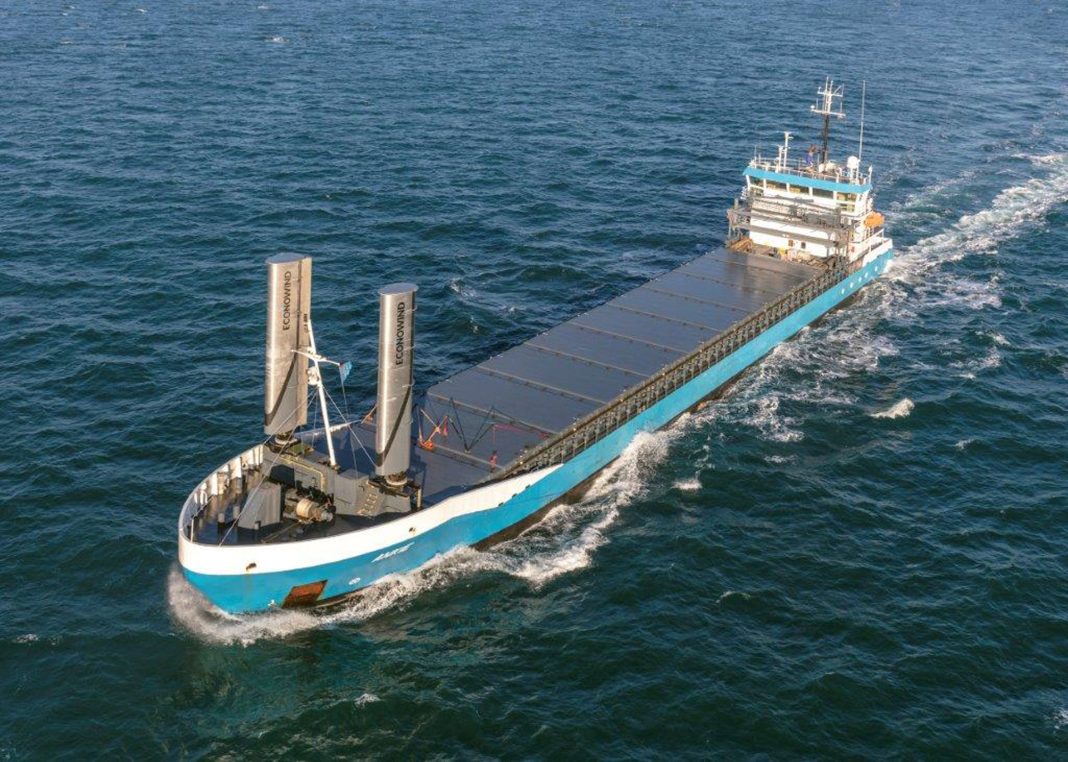Rotterdam, June 30, 2023:The EU-Interreg North Sea Region project ‘WASP: Wind Assisted Ship Propulsion’ has officially concluded with five commercial vessels retrofitted with wind-assist systems, three different wind propulsion technologies tested, third-party validations conducted to verify actual fuel savings achieved and other key deliverables concerning performance indicators, standard sea trials, decision making tools have also been concluded.
Funded by the Interreg North Sea Europe programme, part of the European Regional Development Fund (ERDF), the ‘WASP: Wind Assisted Ship Propulsion’ project brought universities,wind-assist technology providers and ship owners together to research, trial and validate the operational performance of a selection of wind propulsion solutions.
After three and a half years the project has generated a significant stream of much-needed information and transparency around wind propulsion technology selection, installation and operation, contributing greatly to the general development of the wind-assist sector both in the North Sea region and beyond.
The five installations of wind propulsion technology will continue to serve as examples of how wind propulsion systems can be deployed as retrofits on various different vessels. As expected, fuel savings from these systems are variable, delivering up to 10% saving depending on the route and vessel operational profile.
These installations have also contributed to the generation of three points of reference for different wind propulsion technologies and shipping segments that will support ship owners to make investment decisions going forward.
The WASP project has also played a key role in developing standard procedures for sea trials for wind propulsion technology-equipped vessels and the creation of standards for KPI’s in collaboration with the International Towing Tank Conference (ITTC). These are significant developments that reduce the barriers for the uptake of wind propulsion solutions.
In addition to the vessel installations, the project has had a strong focus on the educational field. Twelve key educational events have been held at project partner universities along with others in Enkhuizen Maritime Academy, the Delft Technical University and the World Maritime University.


